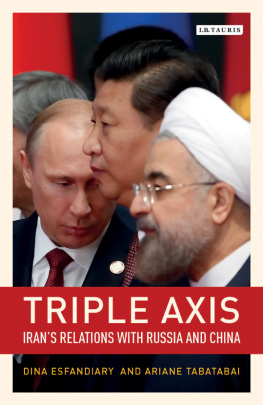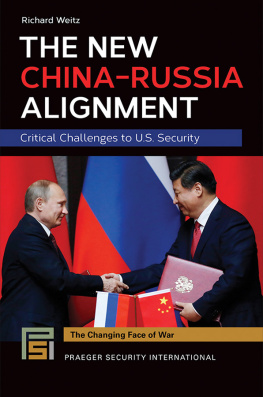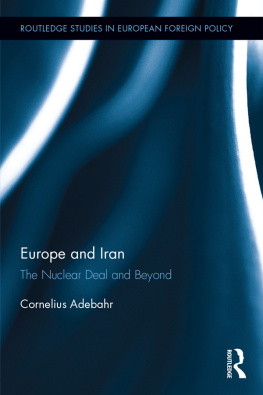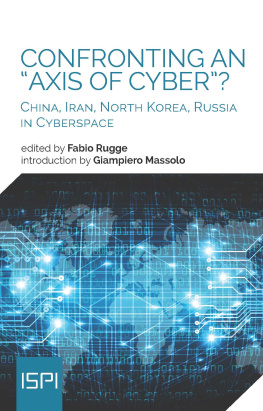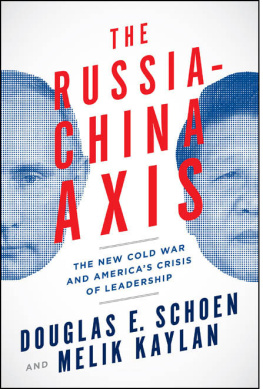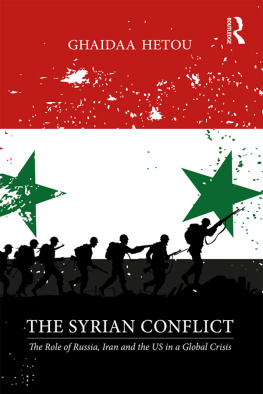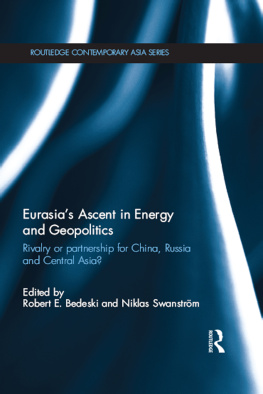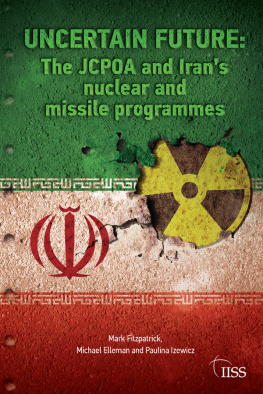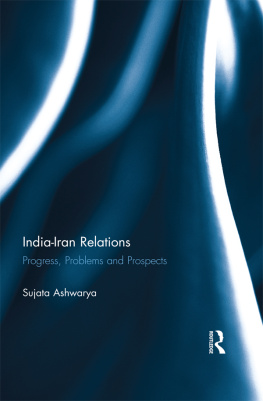Dina Esfandiary is a 201819 International Security Programme Research Fellow at the Harvard Kennedy School's Belfer Center for Science and International Affairs; a CSSS Fellow in the War Studies Department at King's College London; and an Adjunct Fellow in the Middle East Programme at the Center for Strategic and International Studies (CSIS). Prior to joining King's College, she was a Research Associate in the Non-Proliferation and Disarmament Programme of the International Institute for Strategic Studies (IISS) in London, which she joined from a disarmament NGO in Geneva. Esfandiary's work has appeared in a range of publications, including Foreign Affairs, the Atlantic, the Guardian, the Washington Post, the National Interest, International Affairs, and the Washington Quarterly. She is the co-author of Living on the Edge: Iran and the Practice of Nuclear Hedging (2016).
Ariane Tabatabai is Director of Curriculum and Assistant Teaching Professor of Security Studies in the Georgetown University School of Foreign Service; an Adjunct Senior Fellow at the Center for a New American Security (CNAS); a columnist for the Bulletin of the Atomic Scientists; and a Post-doctoral Fellow (201718) at the Harvard Kennedy School's Belfer Center, where she was previously a Stanton Nuclear Security Fellow and an Associate. Previously, Tabatabai also served as a Senior Associate in the Proliferation Prevention Programme at the Center for Strategic and International Studies (CSIS). Tabatabai's work has appeared in a range of scholarly publications, including International Security and the Journal of Strategic Studies, as well as in general-interest publications such as the New York Times, the Financial Times and Foreign Affairs. She holds a PhD from the Department of War Studies at King's College London.
This book is a well-researched treatment of a timely topic. Within the context of such high-profile developments as the Syrian civil war and the US withdrawal from the Iran nuclear agreement, the state of relations between Iran and both Russia and China is an important subject and will remain so in the years ahead. This is a substantively rich and analytically sensible treatment of an important subject.
Paul R. Pillar, author of Why America
Misunderstands the World
Iran's prized geo-strategic location, its large size and wealth in human and natural resources make it one of the most important states in all of Asia. This explains relentless Chinese and Russian overtures toward Tehran. In this timely and insightful book, Dina Esfandiary and Ariane Tabatabai show with superb detail why and how Tehran juggles its Eastern interests as part of its broader foreign policy agenda.
Alex Vatanka, Senior Fellow at the
Middle East Institute in Washington DC and
author of Iran and Pakistan: Security, Diplomacy and
American Influence (I.B.Tauris, 2015)

Published in 2018 by
I.B.Tauris & Co. Ltd
London New York
www.ibtauris.com
Copyright 2018 Dina Esfandiary and Ariane Tabatabai
The right of Dina Esfandiary and Ariane Tabatabai to be identified as the author of this work has been asserted by the author in accordance with the Copyright, Designs and Patents Act 1988.
All rights reserved. Except for brief quotations in a review, this book, or any part thereof, may not be reproduced, stored in or introduced into a retrieval system, or transmitted, in any form or by any means, electronic, mechanical, photocopying, recording or otherwise, without the prior written permission of the publisher.
References to websites were correct at the time of writing.
Library of International Relations 86
ISBN: 978 1 78831 239 4
eISBN: 978 1 78672 473 1
ePDF: 978 1 78673 473 0
A full CIP record for this book is available from the British Library
A full CIP record is available from the Library of Congress
Library of Congress Catalog Card Number: available
ACKNOWLEDGEMENTS
We benefitted from the support, contribution, and feedback of several friends and colleagues in this process. In particular, we would like to thank Aubrey Kenton Thibaut, Zach Kosbie, Darya Dolzikova, and Henry Boyd, whose assistance and feedback made the book possible. We would also like to thank two anonymous reviewers, whose comments were instrumental in helping us sharpen our argument and improve our work. We would like to express our gratitude to the I.B.Tauris team for their insights, flexibility, and rigorous work. Lastly, both authors would like to thank their families, partners and friends for all their support and help.
The authors are listed alphabetically they both contributed equally to this project.
INTRODUCTION
After the collapse of its pro-Western monarch with the 1979 Islamic Revolution, Iran became a pariah state. Responding to the Islamic Republic's revolutionary anti-American and anti-Western narrative, US officials routinely describe Tehran using harsh and bombastic rhetoric. Former President George W. Bush placed the Islamic Republic within the Axis of Evil; In Europe however, Iran became the source of discord, as some wanted to pursue a harsher line against it, while others were loath to cut off business ties. Nevertheless, along with the United States, they sought to isolate the Islamic Republic politically and economically. And with the unveiling of two undeclared Iranian nuclear facilities in the early 2000s, one producing enriched uranium and the other capable of producing plutonium the two pathways to building a nuclear weapon the international community began to come on board to pressure Tehran to forego its nuclear weapon ambitions. But two key countries were reluctant participants in what became an intricate multilateral and multi-layered effort to bring Tehran back into compliance with its international obligations: Russia and China. Both Beijing and Moscow leveraged Iran's political and economic isolation to penetrate key sectors there. From infrastructure to technology to defence, the two countries created a substantial presence there by the time the United Nations Security Council (UNSC) resolutions successfully targeted Tehran in 200510. In turn, the Islamic Republic leveraged its ties with Russia and China, and their interests there, to create a bulwark against Western efforts to isolate Iran again.
Today, Russia and China effectively shelter Iran from complete isolation and provide it with political support, defence assistance, and economic ties that it cannot receive elsewhere. As a result, Beijing and Moscow serve to undermine Western efforts to pressure Tehran. Doing so affords the two powers the ability to poke the West, and the United States especially, in the eye, while providing them access to an important market and granting ties with a critical regional player with access to key resources and theatres. In addition, all three countries share a worldview, one they advance unilaterally and in tandem with one another. They all seek to create or partake in an alternative cluster of international institutions ones created to balance against those established by the United States in the aftermath of World War II while also leveraging the existing world order where they can pursue their interests. The three countries seek to assert themselves as regional hegemons and reduce the influence of the West, particularly the United States, in what they view as their own backyards. As we will see, each views the global order through the prism of its own historical experiences. Ultimately, Beijing, Moscow, and Tehran want the international order to better reflect the interests of rising non-Western states. But while Russia and China are major powers with permanent seats at the UNSC, field powerful militaries equipped with nuclear weapons, and possess substantial economic resources, Iran is a relatively small power one that is a potential leader only in its own region, but not beyond. It is impossible to dismiss or isolate Russia or China on the international stage although Russian interference in US and European electoral processes and aggressive foreign policy led the West to try, with only marginal success on the economic front. But Iran's political, economic, and military prowess is far from consequential and the international community effectively isolated it for years. As a result, while Russia and China see Iran as a convenient partner in stymying the Western order, Iran views the two powers as an instrumental bulwark against Western efforts to isolate it and its own struggle to challenge the world order. Iran's ability to leverage its relations with Russia and China is precisely what we explore in this book.

